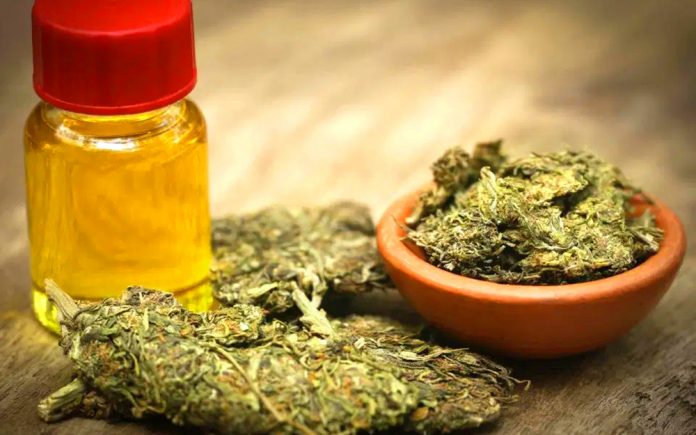
BY RUTH HILL R.N.
Today’s article is about the available research for treating an autoimmune disease called Myasthenia Gravis (MG). Hopefully my metaphors will help to understand this disease and how cannabis treats MG.
Your body has enzymes working in your nervous system to activate your skeletal muscles so you can move, breath, eat, relax or sleep. These enzymes are called neurotransmitters. They are like spark plugs in your car that connects the electrical system, so your car starts. No spark plugs no ignition. Your car goes nowhere. The same goes for your body’s chemistry. You need a spark to connect the nerves to your muscles. The main spark in MG is acetylcholine. If you don’t have enough acetylcholine the muscles in your eyelids, eyes, throat, face or respiratory system do not become activated. An autoimmune disease is a disease whereby the body’s immune system thinks its own antibodies are foreign and begins to attack itself.
Now let’s put these two concepts together. Myasthenia gravis (MG) is an autoimmune disease that affects the neurological space between your muscles and nerves. Acetylcholine is the spark that activates the muscles. Both acquired and congenital forms of MG occur in cats, dogs, and humans. MG mimics other autoimmune diseases so diagnosis can be delayed. MG can become a crisis when the muscles that control breathing are affected. This crisis is what generally brings you to the hospital and starts the medical workup to diagnose your condition.
Factors that trigger or worsen MG include surgery, emotions, stress, bright sunlight, current illness (e.g. viral infection), immunizations, menstruation, and medications (e.g. ciprofloxacin, aminoglycosides, procaine, chloroquine, lithium, procainamide, beta-blockers, and statins).
Treatment includes oral medications such as anticholinesterase agents or steroids. The goal is to slow the acetylcholine breakdown at the nerve junction helping to increase muscle strength and improve the spark between the nerves and muscles. Administering intravenous immunoglobulin, (Ig) a substance produced by the bodies immune system to fight infections, is another treatment. Ig binds to the antibodies that cause MG and eliminates them from circulation.
Medical cannabis, like anticholinesterase agents, can inhibit acetylcholinesterase.
This helps overcome the blocked receptor that causes muscle contractions. A study published in Molecular Pharmaceutics found that THC the primary cannabinoid in cannabis, hinders acetylcholinesterase completely and raises the level of action of the neurotransmitter. Another study showed CBD’s and THC’s effectiveness at reducing the turnover rate of acetylcholine.
A dose of THC-A cannabis can lead to rapid improvement in speech for MG sufferers. After trying cannabis oil, one patient was able to wean her prednisone medication to 5 mg from 10 mg every other day within a few weeks. She experienced no withdrawal symptoms and was able to completely stop using prednisone after two months. Cannabis oil also helped the patient’s other body parts, such as her bones, skin, eyes, hormones and PMS pain.
According to the marijuanadoctors.com website there are many cannabis strains that help with different MG symptoms.
- Blue Dream helps treat the pain, stress and depression that are often associated with MG.
- Green Crack is a good strain for relieving not only pain and depression, but it also works well for fatigue.
- Sour Diesel (Sativa) helps for stress relief. Works well on depression and fatigue.
- Nice (Indica) works well for muscle tension. It’s a very relaxing strain.
- Tessa (Indica) used for anything muscle related.
- Granddaddy Purple (Indica) is beneficial for pain, stress and lack of appetite.
- Cheese (hybrid) a great strain if depression is affecting your appetite.
If you are agreeable to inhaling cannabis, ask your budtender for one of these strains and try taking a toke two to three times a day. Track your response. Cultivators of tinctures do not always identify the strains used. Another option is to purchase a 1:1 ratio of CBD:THC and take 2.5mg 2-3 times a day and track your response. There are tinctures that have both THC and THC-A. THC-A is the acid form of THC which is nonpsychoactive. If self-treatment with cannabis is not getting success, it’s time to utilize a professional medical consultant.
Ruth Hill lectures and consults patients on safe use of medical cannabis. Contact her at holisticcaring.com or hilruth@gmail.com











































